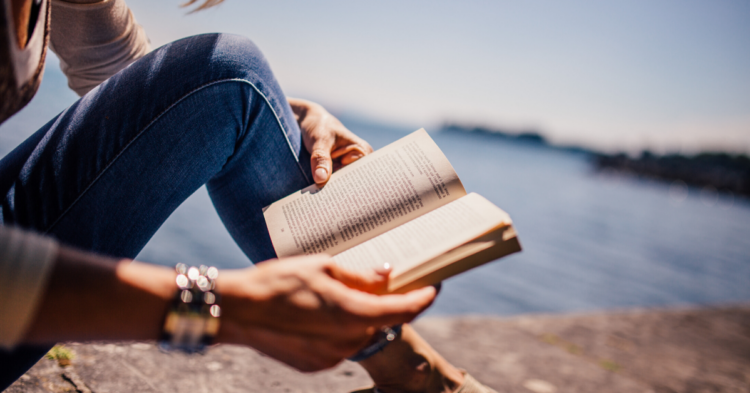Chances are, you’re fairly stressed out right now. Either you’re knee-deep in the news cycle, which is off-the-charts crazy these days, or you’re too busy to keep up with the news, which would likely stress anybody out. Whatever the case, stress reduction is paramount because excessive stress can cause a whole host of physical and mental issues, including headaches, high blood pressure, heart problems, depression, anxiety, and more.
That all makes the news out of the University of Sussex that much more welcome.
Researchers there were looking at a variety of strategies that people use to reduce stress in their lives.

We all have our go-to moves, right? Some will throw on a pair of sneakers and head out for a brisk walk in the fresh air, some will blast some tunes and dance the stress away, and some will plug into a video game to escape to another world.
However, as the researchers found, none of those escapes were nearly as effective as a good book.
Bookworms might have guessed at the results before the study even began.

But even they might not have realized how little it took: just six minutes of reading could reduce a participant’s signs of stress by as much as 68%.
Music fared almost as well, reducing stress by 61%, but having a cup of coffee or tea only reduced stress by 54%, walking by 42%, and video games only reduced stress by a mere 21%.
The study’s author, Dr David Lewis, pointed to the unique power of books.
“Losing yourself in a book is the ultimate relaxation,” he wrote. “It really doesn’t matter what book you read, by losing yourself in a thoroughly engrossing book you can escape from the worries and stresses of the everyday world and spend a while exploring the domain of the author’s imagination.”
And it’s that imagination that really separated books from video games for the participants.
“This is more than merely a distraction,” Lewis wrote, “but an active engaging of the imagination as the words on the printed page stimulate your creativity and cause you to enter what is essentially an altered state of consciousness.”
And while it doesn’t seem to matter too much what you read to relax, how you read might make a difference.
That is to say, if you’re reading to unwind before bed, paper beats out tablet. The artificial blue light from screens has been shown to disrupt sleep patterns, suppressing your body’s melatonin, the hormone that induces sleep.
h/t: The Telegraph

















































